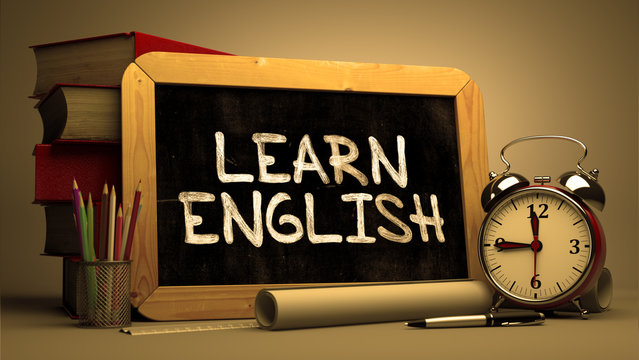
What Are The Best Music Classes Near Me For Beginners?
- 27 Feb 2025
- Music
Beginners often feel overwhelmed when trying to find the right music classes in their area. I understand your struggle, as selecting the perfect class can significantly impact your musical journey. In this post, I'll guide you through the best options that cater specifically to beginners. Whether you're looking for private lessons or group settings, I'll share insights on local studios, community centers, and online resources that can help you build a solid foundation and fuel your passion for music.
Key Takeaways:
- Research Options: Explore various local music schools, community centers, or private instructors to find beginners' classes that suit your needs.
- Class Size: Consider smaller class sizes for more personalized attention, which can enhance your learning experience as a beginner.
- Genre Preference: Choose classes that align with your musical interests, whether it be guitar, piano, voice, or another instrument, to stay motivated and engaged.
Benefits of Taking Music Classes
A variety of benefits come with enrolling in music classes. Not only do these classes enhance your musical abilities, but they also contribute to your overall personal development. By engaging in structured instruction, you gain valuable insights into music theory, practice discipline, and build confidence as you progress. Furthermore, the joy of making music can be a profound outlet for self-expression, fostering emotional well-being.
Skill Development
Against the backdrop of self-teaching, music classes provide structured learning that significantly enhances skill acquisition. Through guidance from experienced instructors, you not only learn the fundamentals but also refine your techniques. This focused approach can accelerate your progress, helping you achieve goals more efficiently than if you were to learn independently.
Social Interaction
Benefits of taking music classes extend beyond just skill enhancement; they also foster social interaction. Engaging with fellow students allows you to share experiences, collaborate on music projects, and build a supportive network. This environment is especially important for beginners, as it encourages engagement and create a sense of belonging within the musical community.
For instance, participating in group lessons or music ensembles helps you develop necessary social skills while creating lasting connections with peers who share your interests. Engaging in collaborative activities can lead to friendships and opportunities for group performances, enhancing both your musical journey and personal life. Moreover, being surrounded by others who are equally passionate about music can significantly boost your motivation and encourage you to step out of your comfort zone.
Types of Music Classes for Beginners
Any aspiring musician has various options for introductory courses. Here are a few types you might consider:
| Instrumental Classes | Focus on learning to play an instrument like guitar, piano, or drums. |
| Vocal Classes | Training to improve singing techniques and voice control. |
| Music Theory Classes | Understanding the fundamentals of music composition and notation. |
| Group Classes | Collaborative learning with other students at a similar level. |
| Online Courses | Flexible learning options tailored to various skill levels. |
Perceiving these options can help you decide what fits your interests best.
Instrumental Classes
At the forefront of music education, instrumental classes offer hands-on experience playing various instruments. Whether you choose the guitar, piano, or drums, you’ll learn foundational techniques and music reading skills. These classes typically focus on individual instruction, allowing you to tailor your learning experience to your pace and interests.
Vocal Classes
Between exploring your vocal potential and mastering singing techniques, vocal classes provide important guidance for beginners. You’ll discover various singing styles, from classical to pop, and learn to project your voice effectively.
Also, these classes emphasize breathing techniques and vocal health, which are vital for sustaining your singing career. You'll likely engage in activities designed to build your confidence and improve your pitch accuracy. The supportive environment fosters growth among peers, fostering friendships and a passion for music.
Factors to Consider When Choosing a Music Class
Unlike picking a random class, choosing the right music class for beginners involves several key factors that can enhance your learning experience. Consider the following elements:
- Location
- Teacher Qualifications
- Class Size
The decision you make will significantly impact your musical journey.
Location
Before selecting a music class, evaluate the location's convenience. Are the classes held nearby, or will you have to commute long distances? A close location not only saves time but also makes it easier for you to attend regularly, promoting consistent practice and learning.
Teacher Qualifications
At the core of an effective music class is the teacher's expertise. Look for instructors who have a solid educational background and relevant experience in teaching beginners. A qualified teacher will adapt lessons to your learning style and provide engaging, personalized instruction.
Consider how the teacher's credentials and experience align with your goals. It's beneficial to choose someone who holds a degree in music or has extensive teaching experience. An instructor who is patient and encouraging can make your learning process much more enjoyable and motivating.
Class Size
Above all, the size of the class can greatly influence your learning experience. Smaller class sizes generally provide more individualized attention, allowing you to receive direct feedback and assistance from the teacher.
Factors such as personal attention and the ability to ask questions are significant when it comes to your progress. In larger classes, you may feel lost or overlooked, which could hinder your development as a musician. Be sure to consider these aspects when making your decision.
Popular Music Class Options Near You
Keep exploring the various music class options available around you! From community centers to specialized music schools, many programs cater to beginners eager to learn an instrument or develop their vocal skills. Each option offers unique benefits and can help you kickstart your musical journey.
Community Centers
Behind the familiar vibe of community centers, you'll find accessible and affordable music classes. These centers often offer group lessons where you can connect with fellow beginners. They may not provide the same level of prestige as music schools, but they're perfect for building confidence and testing the waters in a supportive environment.
Music Schools
Near you, dedicated music schools offer structured programs aimed at beginners. Here, you can learn everything from basic techniques to advanced theory. These institutions typically hire experienced instructors, enabling you to gain valuable insights. Considering the various options available, attending music school can be a significant step in your musical education. They often provide a well-rounded curriculum and foster an encouraging atmosphere. Additionally, scholarships and financial aid might be offered to make these programs more accessible. However, tuition fees can be substantial, so it’s important to evaluate your budget before enrolling.
Online vs. In-Person Music Classes
Many aspiring musicians often ponder whether to choose online or in-person music classes as they begin on their learning journey. Each format offers unique benefits catering to different learning preferences and lifestyles, ultimately impacting your overall experience. It's important to weigh these options carefully, depending on what suits your needs best.
Pros of Online Learning
Between the convenience of flexible scheduling and the accessibility to a global pool of instructors, online music classes have become an attractive option for many beginners. You can learn at your own pace in the comfort of your home, allowing you to focus on the particular skills or instruments that excite you most.
Advantages of In-Person Classes
Before deciding, I suggest considering the advantages of in-person music classes. Direct interaction with an instructor enables immediate feedback, which can significantly enhance your learning experience. You’ll have the chance to participate in practical exercises, engage with fellow learners, and immerse yourself in a structured environment.
Pros of in-person classes include the invaluable real-time guidance from your instructor and the opportunity to build camaraderie with fellow students. Engaging face-to-face often leads to deeper connections and stronger motivation. Furthermore, having access to physical resources, like instruments and sheet music, can enhance your learning experience significantly, making it more hands-on and interactive. If you're someone who thrives on personal connection and immediate feedback, in-person classes might be the right fit for you.
How to Get Started with Music Classes
Once again, launching on your musical journey requires simple but effective steps. I recommend starting by researching local music schools or online classes that cater to beginners. You can check reviews and feedback from past students to ensure you select a reputable establishment. Also, don’t hesitate to reach out to instructors to discuss your aspirations; they can guide you on which classes will suit your needs best.
Assessing Your Interests
Classes can vary widely, from instrument-specific sessions to vocal training or even music theory. I suggest you think about which aspects of music excite you the most. Are you drawn to playing instruments, singing, or composing? By identifying your interests, you'll find options that resonate with you and keep you motivated to learn.
Setting Goals
Goals are the foundation of any learning experience. I believe it's necessary to set realistic, achievable goals for your music classes. Whether it's mastering a song, learning basic chords, or understanding musical notation, having clear objectives can keep you focused and inspired throughout your learning process.
Also, I urge you to break down your goals into smaller, manageable steps. This way, you can track your progress and celebrate your achievements along the way. Make sure your goals align with your passions and time commitments to avoid feeling overwhelmed. Do not forget, achieving small milestones can lead to a profound sense of accomplishment, keeping your motivation high and your enthusiasm alive.
To wrap up
Now that I've explored various options for the best music classes near you, it's imperative to consider your specific interests, skill level, and the teaching style that suits you best. Whether you prefer private lessons or group classes, online or in-person, there's a plethora of choices available. I recommend visiting local music schools or community centers, and checking online platforms to find the right match for your musical journey. With the right class, you'll be well on your way to becoming the musician you've always wanted to be.
Q: What should I look for in a music class for beginners?
A: When searching for music classes for beginners, consider several factors. Look for classes that offer a supportive environment where beginners can feel comfortable. Check the instructor's qualifications and experience in teaching beginners, as well as their ability to communicate complex concepts in a simple manner. Additionally, consider the class size; smaller classes often provide more personalized attention. Finally, review the curriculum to ensure it covers fundamental skills such as music theory, ear training, and instrument mechanics, which are crucial for building a strong foundation in music.
Q: Are there different types of music classes available for beginners?
A: Yes, there are various types of music classes available for beginners. These can include private lessons, group classes, and online courses. Private lessons offer individualized attention and can be tailored to your specific interests and goals. Group classes can provide a sense of community and encourage collaboration among students, making learning more enjoyable. Additionally, online courses have gained popularity, allowing for flexibility in scheduling and a wide range of topics. Explore these various options to find the format that best suits your learning style and preferences.
Q: How do I find the best music classes near me for beginners?
A: To find the best music classes for beginners in your area, start by researching local music schools or community centers that offer musical education. Use online resources such as Google Maps, Yelp, or social media platforms to gather reviews and recommendations from former students. Check websites for detailed descriptions of the classes offered, including schedules, pricing, and instructor bios. Additionally, you may want to ask around in your community or speak to friends and family who have experience with music education to gather firsthand information. Once you have a list of options, consider attending a trial class to assess the atmosphere and teaching style before making your final decision.
Article by - MySuperGuruCookies Consent
This website use cookies to help you have a superior and more relevant browsing experience on the website. Read more...




